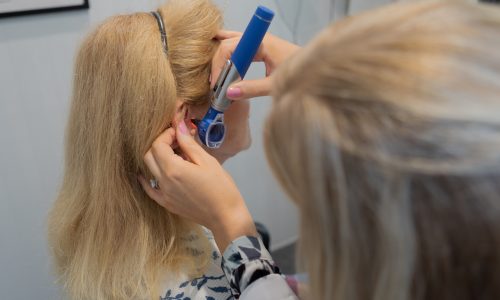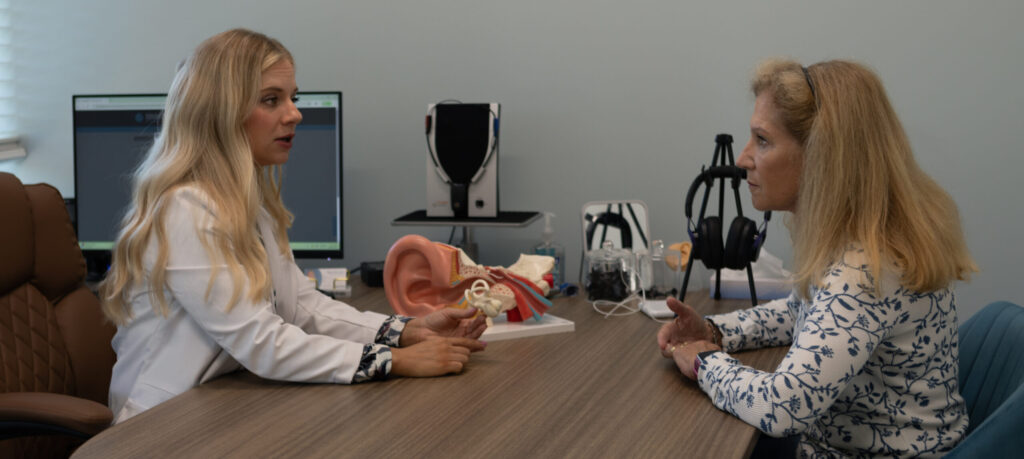Hearing Tests and Communication Needs Assessments
A comprehensive hearing assessment is the essential first step in identifying your needs and determining the most effective path to better hearing.
At Integral Audiology, we believe in treating the person, not just the hearing loss, which is why we offer comprehensive Communication Needs Assessments alongside thorough diagnostic hearing exams. This approach helps us identify not just a hearing loss, but to better understand each individual’s unique hearing challenges, listening environments, preferences, and goals. This complete diagnostic hearing care approach ensures solutions are tailored to the individual, not just the test results.
Diagnostic Hearing Exam
A diagnostic hearing test measures how each part of your hearing system is working. This includes tone testing, middle ear evaluations, and speech understanding scores. These results give us a clear picture of your hearing sensitivity and overall ear health.
What We Evaluate:

Middle Ear Function
Tympanometry and Acoustic Reflexes help us understand how the eardrum and middle ear are working.
Hearing Sensitivity
Tone testing across frequencies to identify where hearing may be reduced.
Speech Understanding
We measure how clearly you hear words in quiet and in background noise.
Communication Needs Assessment
Beyond the hearing test, we also complete a Communication Needs Assessment. This is a focused conversation designed to understand how your hearing abilities affect your real‑world listening — at home, at work, with family, in noisy environments, and in the situations that matter most to you.
What We Evaluate:

Your Listening Priorities
We discuss which environments are most important to you, such as meetings, family gatherings, restaurants, or outdoor activities.
Challenges You Face
We explore where you notice the most difficulty, like soft voices, background noise, distance, or certain types of speakers.
Goal-based Recommendations
We use your goals to shape next steps, ensuring any treatment or technology aligns with the life you want to hear clearly.
Cognitive Screening
A brief, research‑based screening that helps us understand how your brain processes information. This adds important context to your listening challenges and ensures our recommendations support both hearing and cognitive wellness.
FAQs about Hearing Tests
Who should have their hearing tested?
- Anyone over the age of 50
- Individuals who have noticed a sudden change in hearing
- Individuals who experience ringing or tinnitus
- Individuals who spend time in noisy environments
- Individuals who struggle to understand speech in noisy environements
How long does a hearing test take?
We schedule 30 minutes for a hearing test, but you should only expect to be in the sound-treated booth for up to 15 minutes.
How often do I need to have my hearing tested?
Adults over 50 or anyone with a known hearing loss should have their hearing tested annually, while individuals 18-49 should have their hearing tested every 3-5 years.
Does insurance cover hearing tests?
Most insurance plans cover hearing tests. We can verify your coverage prior to your appointment.
